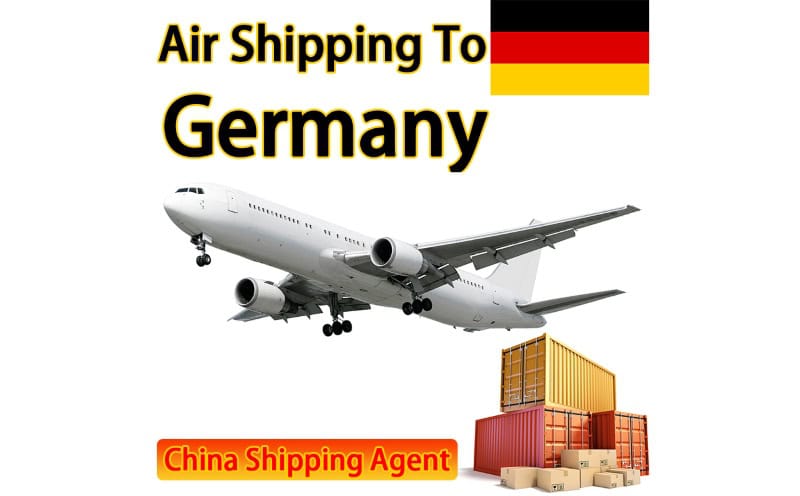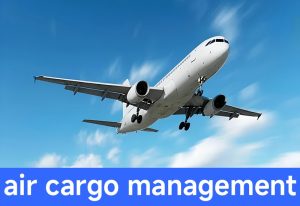Air shipping is one of the fastest and most reliable ways to transport goods internationally, and Germany, as a major European hub, sees significant air cargo traffic daily. Whether you’re a business owner looking to expand into the German market or an individual sending personal items, understanding the air shipping process is essential. This guide explores the steps, costs, regulations, and best practices for successfully shipping goods by air to Germany.

Why Choose Air Shipping to Germany?
- Speed and Efficiency
Air shipping is the fastest method of international transportation, making it ideal for urgent shipments. With direct flights to Germany’s major airports like Frankfurt, Munich, and Berlin, goods can be delivered within days. - Reliability and Security
Air cargo services offer precise scheduling and advanced tracking systems, ensuring that shipments arrive on time. The stringent security measures in air freight handling also minimize the risk of damage or theft. - Connectivity
Germany’s strategic location and well-connected airports make it a gateway to other European markets. Air shipping ensures seamless onward distribution if your goods are destined for neighboring countries.
Step-by-Step Process for Air Shipping to Germany
- Choose the Right Carrier
Select an air freight carrier that aligns with your shipping needs. Popular carriers like DHL, FedEx, and Lufthansa Cargo provide reliable services with flexible options for various shipment sizes and types. - Prepare Your Goods for Shipment
Proper packaging is crucial to protect goods during transit. Use sturdy materials and secure packing methods to prevent damage. For fragile items, consider additional cushioning and labeling packages as “Handle with Care.” - Understand Shipping Documents
Accurate documentation is essential for smooth customs clearance. Key documents include:- Air Waybill (AWB)
- Commercial Invoice
- Packing List
- Certificate of Origin (if required)
- Import licenses or permits (if applicable)
- Customs Regulations and Taxes
Familiarize yourself with Germany’s customs regulations. Goods entering Germany are subject to VAT (Value Added Tax) and duties based on the type of goods and their declared value. Ensuring accurate declarations can prevent delays or penalties. - Track Your Shipment
Use the tracking tools provided by your carrier to monitor the progress of your shipment. This keeps you informed about delays and estimated delivery times.
Key Considerations for Air Shipping to Germany
- Cost Factors
Air shipping costs depend on several factors, including:- Weight and Volume: Carriers charge based on actual or volumetric weight, whichever is higher.
- Destination: Shipping to major hubs like Frankfurt is often cheaper than to smaller airports.
- Service Type: Express services are faster but more expensive than standard air freight.
- Prohibited and Restricted Items
Germany has strict rules on prohibited and restricted items. Prohibited items include explosives, counterfeit goods, and certain chemicals. Restricted items, such as pharmaceuticals and food products, may require special permits. - Insurance Coverage
Consider purchasing cargo insurance to protect your shipment against potential loss or damage during transit. Most carriers offer insurance, but third-party options may provide better coverage at competitive rates. - Environmental Regulations
Germany is committed to sustainability, and shippers are encouraged to reduce carbon emissions. Some carriers offer eco-friendly shipping options to align with these goals.
Best Practices for Successful Air Shipping
- Partner with Freight Forwarders
Freight forwarders specialize in managing international shipments. They can handle documentation, customs clearance, and logistics, saving you time and ensuring compliance with regulations. - Optimize Packaging
Reducing package dimensions and weight can significantly lower shipping costs. Use lightweight but durable materials, and consolidate shipments when possible. - Plan for Peak Seasons
During peak seasons, such as holidays or major trade shows, air cargo space can become limited. Book shipments early to avoid delays and higher rates. - Leverage Technology
Use digital tools to streamline the shipping process. Many platforms allow you to compare carrier rates, book services, and manage documentation online.
Applications of Air Shipping to Germany
- E-commerce
For businesses shipping products to German customers, air freight ensures timely delivery and enhances customer satisfaction. This is particularly crucial for high-value or time-sensitive items. - Industrial Goods
Manufacturers rely on air shipping for the quick transportation of components and machinery needed in Germany’s thriving industrial sectors. - Perishable Goods
Items like fresh produce, pharmaceuticals, and flowers benefit from the speed of air shipping, ensuring they arrive in optimal condition. - Personal Shipments
Individuals sending personal items, such as gifts or urgent documents, can rely on air shipping for fast and secure delivery.
Challenges in Air Shipping and How to Overcome Them
- High Costs
Air shipping is more expensive than sea or road freight. To mitigate costs, ship lighter packages or choose less urgent service tiers. - Customs Delays
Incomplete or incorrect documentation can lead to delays. Work with experienced freight forwarders or carriers to ensure compliance. - Space Constraints
During peak periods, space on cargo flights may be limited. Plan shipments in advance and consider flexible delivery timelines to secure space.
The Value of Air Shipping to Germany
Air shipping offers unmatched speed and reliability, making it the preferred choice for businesses and individuals needing urgent or secure deliveries. With Germany’s robust infrastructure and central location in Europe, air freight is a gateway to endless opportunities, enabling seamless trade and connectivity.
Conclusion
Air shipping to Germany is an essential solution for businesses and individuals looking to send goods quickly and reliably. By understanding the process, costs, and regulations, you can optimize your shipping strategy for efficiency and cost-effectiveness. Whether it’s e-commerce products, industrial supplies, or personal shipments, air freight ensures your cargo reaches its destination securely and on time, supporting global connections and growth.



